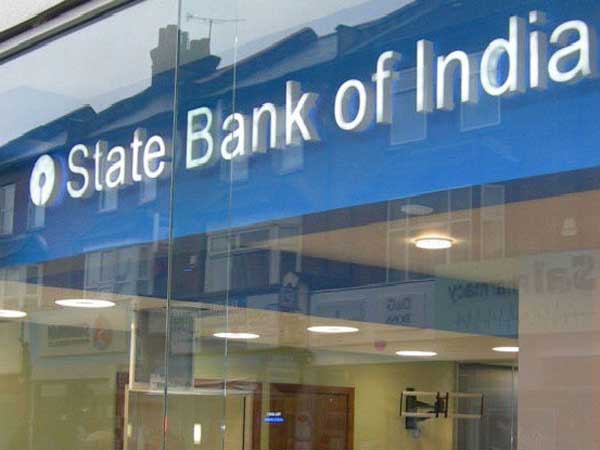In a move to provide a financial cushion to families who have lost an earning member of the family due to Covid-19, the government recently announced a few measures under the Employees State Insurance (ESI) Act and the EPFO’s EDLI (Employees’ Deposit Linked Insurance) scheme.
The benefit of family pension given under the ESI Act in case of employment related deaths is now extended to those who have died due to Covid-19.
The measures under the EDLI Scheme are a reiteration of those already announced by the Labour Ministry on April 28. That includes, increasing the minimum and maximum assurance benefits from the Scheme in case of death of an employee to Rs 2.5 lakh and Rs 7 lakh respectively. Further, benefits under the scheme have also been made available to the families of contractual/ casual workers.
Covid death under ESI
ESI is currently applicable to employees earning wages of up to Rs 21,000 per month working in a factory carrying out manufacturing process. All factories employing 10 (20 in case of Maharashtra and Chandigarh) or more employees are covered. The wage (all remuneration) limit is ₹25,000 in case of a person with a disability.
In these establishments, employers must contribute 3.25 per cent of the wages of the employee to the ESIC. Employees’ contribution of 0.75 per cent will also be deducted and transferred to ESIC.
An employee covered under this Act will be called an ‘insured person’.
Families of those covered under the scheme would get pension benefits (in addition to other benefits) in case of death due to employment.
A pension equivalent to 90 per cent of the average daily wage drawn by the worker is available to the spouse (till remarriage) and widowed mother for life and for children till they attain the age of 25 years. For the female child, the benefit is available till her marriage.
In case the insured person does not leave behind any of the dependents referred above, then his parents will get part of the pension and if no parent is alive then his/her paternal grandparent will get an equal amount as dependent benefit.
With addition of death due to Covid under ESI, all dependent family members of the deceased who have been registered in the online portal of the ESIC prior to their diagnosis of Covid disease will be entitled to receive the same benefits.
However, there are two conditions. One, the deceased would have to be registered on the ESIC online portal at least three months prior to the diagnosis of Covid disease. Secondly, the deceased must have been employed and contributions for at least 78 days should have been paid or payable during a period of one year immediately preceding the diagnosis of Covid.
If these conditions are fulfilled, the insured person’s dependants will be entitled to receive monthly pension payment during their life. The scheme will be effective for a period of two years from March 24, 2020.
Rise in EDLI benefits
To provide income security to the family of a private sector employee after his/her death, the government introduced the Employees’ Deposit Linked Insurance Scheme in 1976. This life insurance scheme covers all active members of the Employees’ Provident Fund. For availing of the insurance cover, employees need not contribute any amount.
In the unfortunate event of death of an employee who is a member of the EDLI scheme, family members receive assured benefits. The benefit under this scheme is based on the monthly wage (basic + dearness allowance) and/or the average balance in the member’s PF account, subject to minimum and maximum limits. Monthly wages here are capped at ₹15,000.
As per the recent amendment, the benefit is calculated by using the following formula: (Average monthly wages drawn during the preceding 12 months*35) plus (50 per cent of the average PF balance during the last 12 months, subject to a ceiling of ₹1,75,000). Irrespective of the formula, the minimum benefit will not be less than ₹2,50,000, if the employee has continuously worked for 12 months.
Earlier, the 12 months employment condition in the above provision requires working at the same establishment. Now, that has been removed and amended to one or more establishments. This is expected to benefit contractual/ casual labourers who were losing out on benefits due to the condition of continuous one year in one establishment.
The new minimum death cover of Rs 2.5 lakh (if not for amendment, Rs 2 lakh) will be effective retrospectively from February 15, 2020.
Amount of maximum benefit has been increased from 6 lakhs to 7 lakhs to the family members of deceased employee.
These new limits will be in effect for three years from April 28, 2021.
The benefits under the scheme will be payable to the nominee mentioned by the employee. If no nomination is made, his spouse, unmarried daughters and minor sons will be beneficiaries.
Exempted entities
While nothing can replace the loss caused due to the death of a loved one, monetary support would help meet the immediate financial needs of the family, especially if the deceased is the bread winner.
Families of the deceased (due to Covid) should ascertain whether they are applicable for the benefits under both or one of ESI and EDLI schemes, and accordingly claim the amount.
There are firms/establishments who would have obtained exemptions from the applicability of ESI and EDLI schemes on the understanding that the benefits provided by them to employees will be similar or more beneficial.
Beneficiaries of employees belonging to such organisations have to be cautious if the new amendments are made applicable on their benefit amount. As per Saraswathi Kasturirangan, Partner, Deloitte India, “Given the retrospective nature of some of these provisions, it is important for employers to determine how these benefits would be extended to their employees and also enhance the insurance coverage in line with these requirements.”






